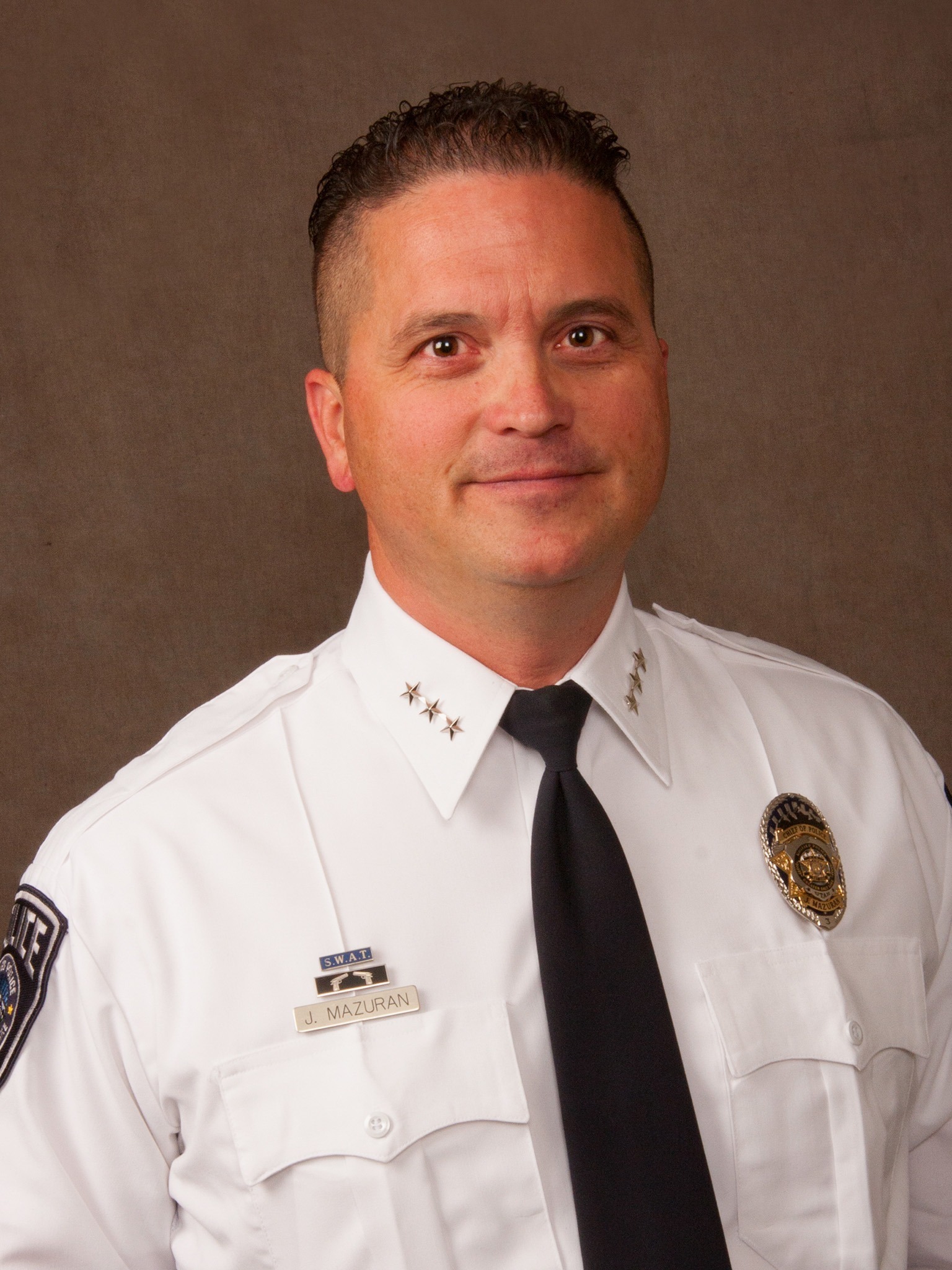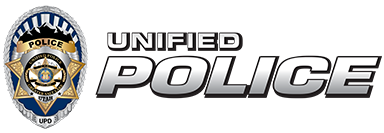About UPD: Training & Policy
Quick Links:

Chief of Police Jason Mazuran
“As an organization, we strive to always be transparent and accountable to the citizens that we serve. This includes a constant review of policies and updating of training to meet best practices and address the specific needs of the communities we serve.”
The Unified Police Department (UPD), under the guidance of Chief Mazuran and Board of Directors, is constantly reviewing and updating policies and training to ensure officers are utilizing best practices and are equipped to serve our communities. We will continue to engage our community leaders as we explore opportunities for improvement.
List of Training Topics for UPD
Officers are trained to use the least amount of force necessary to achieve a peaceful outcome. Continued de-escalation training, provided to all officers, helps reinforce this. De-escalation tactics have been incorporated into our defensive tactics and firearms trainings which engage officers in scenarios that allow them to utilize de-escalation tactics. To give officers additional tools, UPD provides cultural sensitivity training, including LGBTQ sensitivity training.
Annually, UPD officers receive training on these topics:
- Sexual Harassment
- Hazmat
- Bloodborne Pathogens
- Use of Force & De-escalation Options
- Legal Updates
- Bureau of Criminal Identification (BCI) Certification (bi-annually)
- Emergency Vehicle Operations (every three years)
For the last eight years, UPD officers have received additional training on the following topics:
2020-2021 training cycle:
- Update Needed
- Domestic Violence and Victim Advocacy
- Rescue Task Force
- Officer Involved in Critical Incident Protocols
- Defensive Tactics and First Aid*
2019-2020 training cycle:
- Domestic Violence and Victim Advocacy
- Rescue Task Force
- Officer Involved in Critical Incident Protocols
- Defensive Tactics and First Aid*
2018-2019 training cycle:
- Rescue Task Force/Active Shooter
- Mental and Physical Wellness
- Pursuit Prevention Techniques
- Emergency Driving
- Distracted Driving
2017-2018 training cycle:
- De-escalation
- Body Camera Use and Narration
- Use of Force Options
- Building clearing
- Searching Techniques
2016-2017 training cycle:
- Active Shooter
- Building Clearing
- High-Risk Vehicle Stops
- Human Trafficking Intervention
- Officer Involved in Critical Incidents
- Diffusion Techniques
- Defensive Tactics*
- Personal Social Media Use
2015-2016 training cycle:
Anti-Discrimination
- Conflict Resolution
- Mental Health Awareness
- Rescue Task Force
- Domestic Violence and Victim Advocacy
- Mental Health Follow-up
2014-2015 training cycle:
- CPR
- Dog Interaction
- Defensive and Arrest Control Tactics*
- Active Shooter Response
- Wellness
- Trauma-Based Sexual Assault Investigations
- Critical Incident Response
2013-2014 training cycle:
- Wellness: Mental Health, Emotional Health, Physical Health, Spirit Health
- First Aid
- Defensive/Arrest Control Tactics*
- Real-Time Crime
- Critical Incident Response
* Defensive tactics focus on principles and practical aspects of personal safety. De-escalation techniques are included in this training.
Diversity in the UPD
The Unified Police Department is determined to ensure our workforce reflects the community we serve.
Body-Worn Cameras
In 2017, the Unified Police Department (UPD) received a grant to purchase cameras and video storage for half of our patrol officers. Upon expiration of the grant in 2019, the UPD Board of Directors allocated funds to continue the program. Both state statute (77-7a-104) and UPD policies direct the mandatory activation and use of a body camera. Officers are required to activate their body cameras upon arriving at any call for service or on pro-active law enforcement encounter such as traffic stops and pedestrian stops. Failure to activate a body camera is a disciplinary offense.
